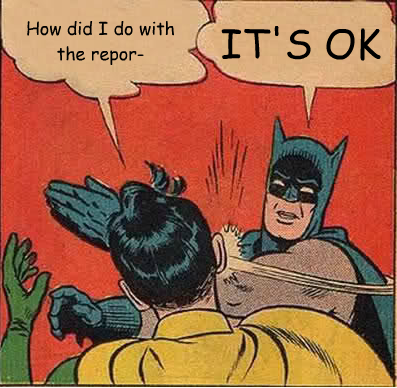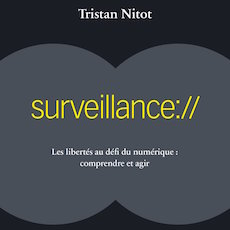
Tristan - So Daniel, you're launching BlueGriffon EPUB Edition…
Daniel Glazman: Hi Tristan. Yes, it has been made available earlier today. The end of a long road!
Tristan - What problem is it trying to solve?
Daniel: People authoring and/or publishing EPUB ebooks today use a too complex and too expensive editorial chain. BlueGriffon EPUB Edition aims at drastically easing that pain.
BlueGriffon EPUB Edition implements all of EPUB2 and almost all of EPUB3, offering full UI-based control on metadata, table of contents, guide, spine, NCX and other exotic species of the EPUB world. And it's of course based on our popular Web editor BlueGriffon, so powered by Gecko, the rendering engine of Firefox. The application is not based on a proprietary format, it only knows IDPF standards (EPUB2 and 3) and W3C standards (HTML, CSS, SVG, etc.) and it's then easy to integrate it into the previously mentioned editorial chain to simplify it, replacing existing and complex other software or even manual hacks!
And the price is rather cheap, and that's quite disruptive in that space given the often very expensive price of everything tagged «EPUB» in the authoring space...
Tristan - How much does it cost?
Daniel: A license for a single user on a single computer will cost 195.00€. Software in the ebooks' world are usually (much) more expensive but we have decided to keep the price relatively low to allow individual authors to buy it. Please keep in mind BlueGriffon EPUB Edition is the result of two years of extremely hard work...
We will of course offer OEM licensing and discounts for multiple licenses (>10).

Blue Griffon Epub Edition's main window
Tristan - Who would be interested in using it?
Daniel: If I look at the many inquiries about BlueGriffon EPUB Editor we have received during the last twelve months, many different people: individual book authors, publishing companies, software companies working in that space, translators, Academia, private companies using EPUB in their Knowledge Management, etc.
As far as I know, it's the only real EPUB3 Wysiwyg editor on the market. With vertical writing about to hit a Gecko engine near us, it will be perfect for the Asian market and in particular the Japanese one where EPUB3 is already a hit.
Tristan - What are the alternatives for them?
Daniel: If you except the free Sigil that is restricted to EPUB2, offers
less metadata control, has no CSS SVG or MathML editor, there is no alternative at this time. All existing solutions implement only part of what authors or publishers need. It implies they have to rely on manual cleanup based on deep technical knowledge, permanent switches between almost incompatible tools or tools based on proprietary formats and only exporting to EPUB but unable to open it...
Tristan - What does BlueGriffon EPUB Edition do that other solutions don't do?
Daniel: In two words: many things! I just can't list them all but here's a sample: real conformance to EPUB2 and EPUB3 specifications, conformance to XHTML1.1 (EPUB2) and HTML5 (EPUB3), one of the best CSS editors on the market, builtin SVG editor, builtin MathML editor, UI for epub:type, and much more. And since it's based on Gecko, it's truly Wysiwyg and also extensible through add-ons just like BlueGriffon, Firefox or Thunderbird.

Editing Japanese text in BlueGriffon Epub Edition
Tristan - What makes users choose BlueGriffon EPUB Edition instead of alternatives?
Daniel: Certainly three things:
- simplification of their editorial chain
- the long features list offering them a UI-based manipulation of their ebooks requiring less technical knowledge
- the low price
Tristan - Under which license is it? I understand that your work is based on the Mozilla codebase
Daniel: The codebase uses two licenses: since it's based on the Web editor BlueGriffon and then Mozilla, that part is MPL. The source is already available through the bluegriffon.org web site and our SVN. The extra code specific to EPUB is proprietary and won't be open-sourced.
Tristan - Are there options for customers, like add-ons for example?
Daniel: Not at this time since we already integrated our best BlueGriffon add-ons into the EPUB Edition bundle. But we have plans for EPUB-centric add-ons that we will release later this year, yes.
Tristan - What are the features that come with it that the "normal" version of BlueGriffon does not have?
Daniel: Of course, all the EPUB2 and EPUB3 management. On the HTML/CSS front, the EPUB Edition comes with our CSS Pro Editor, Table Layouts, Word Count, MathML Editor, Active View and Eye Dropper commercial add-ons built-in. We also tweaked a bit the theme, mostly changing the icon set, to make it look different from the Web editor version.
Tristan - how did you manage to release 4 binaries on 6 platforms? (Win XP, Win 7, Win 8, Mac OSX, GNU/Linux 32 bits & 64 bits)
Daniel: In 3 words : working a lot  More seriously, that's a benefit we (Mozilla contributors) all get from the Mozilla platform: one codebase, many builds. So all I have to do is to set up multiple build environments, launch builds, and collect final packages. Works like a charm. All praise Moz! Like I said on my blog, and I do mean it: "On the Mozilla side, this is quite good news I must say. Most current EPUB readers and authoring tools are based on WebKit or the rendering engine inside Apple Pages. BlueGriffon EPUB Edition shows that Gecko is a 100% viable solution as a rendering engine for EPUB. It also shows that XUL is still a superb technology allowing very complex consumer- or business-oriented applications."''
More seriously, that's a benefit we (Mozilla contributors) all get from the Mozilla platform: one codebase, many builds. So all I have to do is to set up multiple build environments, launch builds, and collect final packages. Works like a charm. All praise Moz! Like I said on my blog, and I do mean it: "On the Mozilla side, this is quite good news I must say. Most current EPUB readers and authoring tools are based on WebKit or the rendering engine inside Apple Pages. BlueGriffon EPUB Edition shows that Gecko is a 100% viable solution as a rendering engine for EPUB. It also shows that XUL is still a superb technology allowing very complex consumer- or business-oriented applications."''
Tristan - Thanks Daniel, and good luck with this new edition of BlueGriffon!






 [
[









